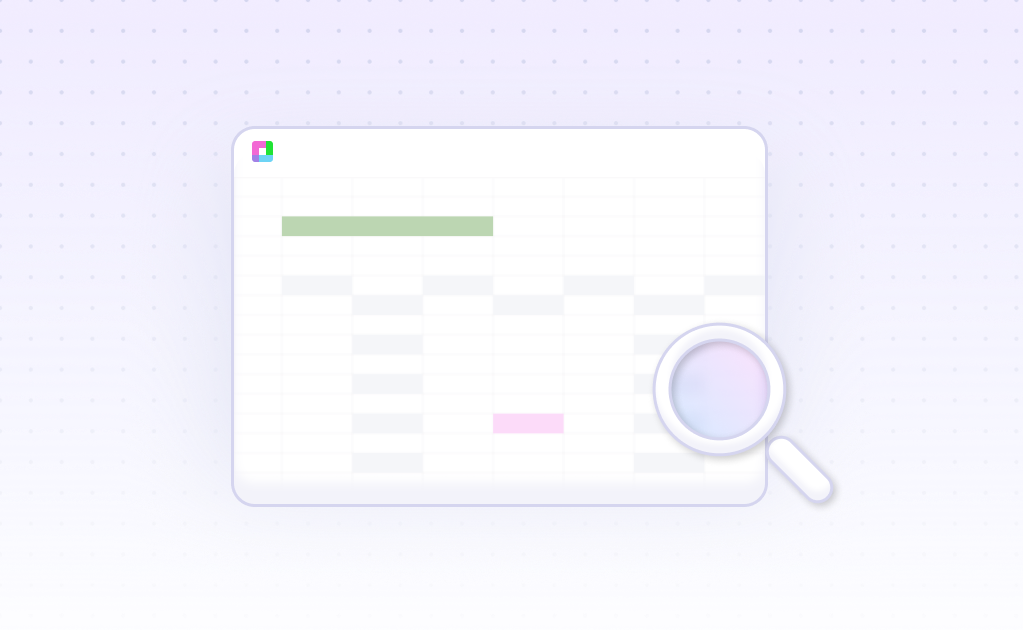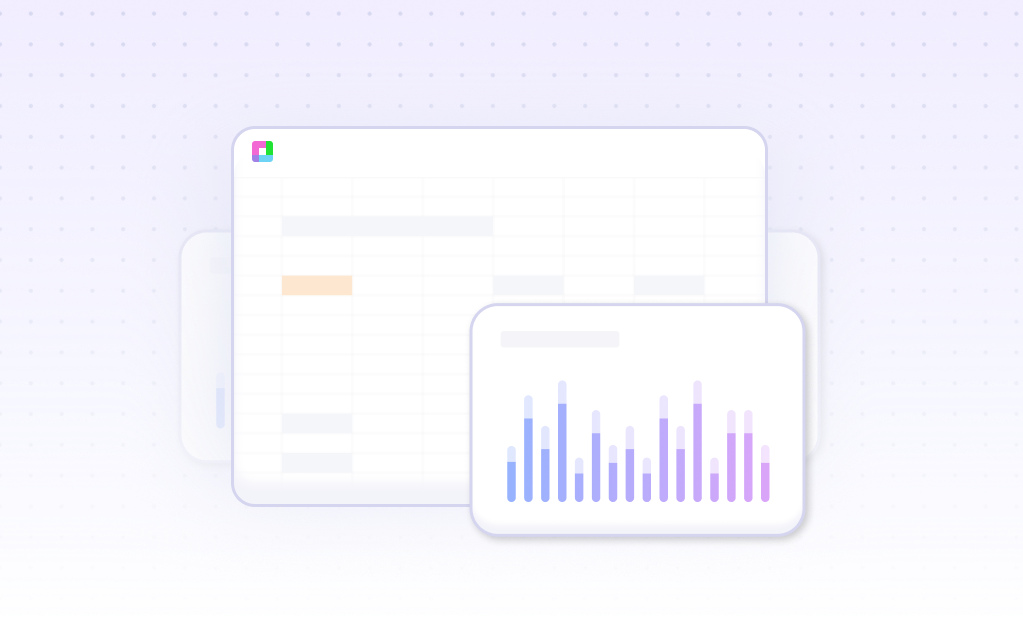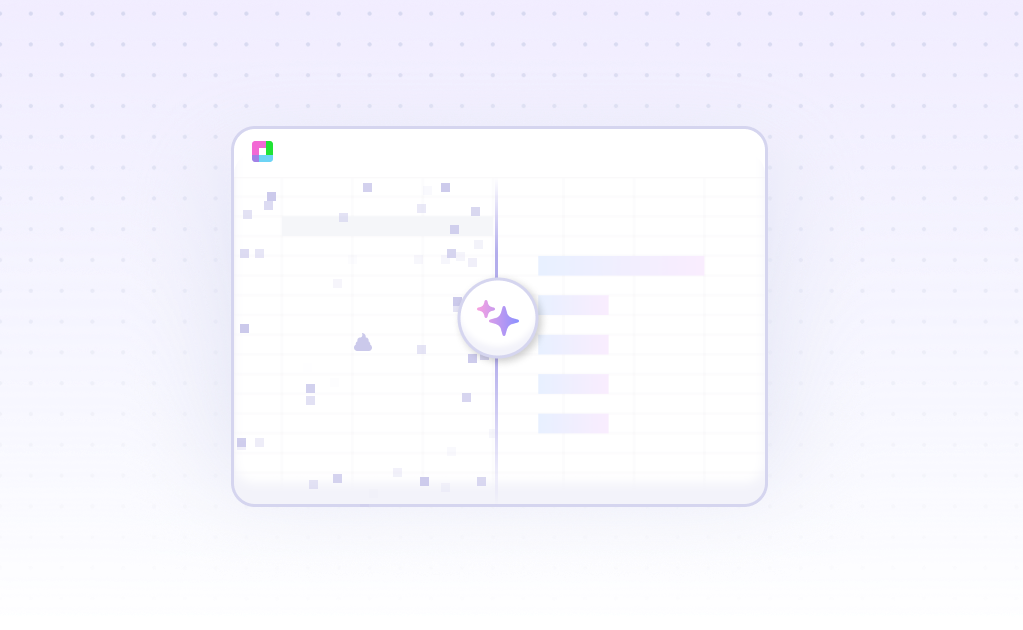
Introduction
Financial rate analysis helps organizations evaluate their financial health through key metrics and ratios. Excel has long been the standard tool for calculating financial ratios like gross profit margin, EBITDA margin, and debt-to-equity ratios. While Excel enables comparison of these metrics against industry benchmarks, artificial intelligence now offers enhanced capabilities for financial analysis.
AI is revolutionizing financial services by automating routine calculations, providing instant access to insights, and streamlining decision-making processes. Sourcetable combines these AI advantages with familiar spreadsheet functionality, offering automated data cleaning, formula generation, and interactive reporting capabilities. By integrating SQL and Python, Sourcetable delivers deeper analytical insights without requiring Excel expertise.
This guide explores how Sourcetable's AI-powered platform simplifies financial rate analysis, which you can experience at sourcetable.com/signup.
Why Sourcetable Is Superior for Financial Rate Analysis
Sourcetable revolutionizes financial rate analysis by combining Excel's functionality with AI-powered automation. While Excel-like Tables for Confluence offers basic spreadsheet features, Sourcetable provides advanced natural language processing capabilities that streamline complex financial calculations and reporting.
Automated Analysis and Reporting
Sourcetable's AI engine automates routine financial tasks, from formula writing to data cleaning. Users can generate sophisticated analyses through natural language queries, eliminating the manual formula creation required in traditional Excel workflows.
Enhanced Forecasting Capabilities
Unlike basic spreadsheet tools, Sourcetable leverages AI to identify patterns and anomalies in financial data. This capability enables more accurate forecasting and adaptable predictive models that respond to market changes.
Cost-Effective Solution
Sourcetable offers a free pricing model with comprehensive features, including API access and multi-user collaboration. In contrast, Excel-like Tables for Confluence charges per user and requires additional costs for basic functionality.
Streamlined Workflow Integration
The platform's ability to create instant visualizations and reports through natural language commands dramatically reduces analysis time. This automation advantage, combined with built-in audit trails and collaborative features, makes Sourcetable the superior choice for modern financial analysis.
Benefits of Financial Rate Analysis with AI-Powered Spreadsheets
Financial statement analysis serves as a crucial tool for business success. It helps assess company performance, identify opportunities and risks, and monitor progress against goals. Through detailed analysis, organizations can uncover vital insights about profitability, efficiency, liquidity, valuation and debt management.
Key Advantages of Financial Statement Analysis
Financial analysis provides essential insights for multiple stakeholders. For managers, it improves operational decision-making and strategic planning. Investors use it to evaluate investment opportunities, while lenders assess creditworthiness. The analysis also facilitates valuations for mergers, acquisitions, and partnerships.
Enhanced Analysis with AI-Powered Tools
Modern AI-powered spreadsheets like Rows elevate financial analysis capabilities. These tools offer advanced features including AI-driven data extraction, classification, and summarization. The AI Analyst functionality and specialized formulas streamline data cleanup and analysis tasks, enabling more efficient financial evaluations.
Financial teams can leverage AI capabilities to identify trends, compare performance across fiscal periods, and benchmark against peer companies. This technological advancement in spreadsheet analysis helps shape more informed financial strategies and supports better business outcomes.
Financial Rate Analysis Examples with Sourcetable AI Spreadsheets
Liquidity Analysis
Analyze operational liquidity using the Current Ratio (Total Current Assets / Total Current Liabilities) and Days Cash on Hand ((Cash + Cash Equivalents + Short Term Investments) / [(Total Expenses – Depreciation and Amortization) / Days in Period]). AI automation streamlines these calculations while ensuring accuracy.
Operational Efficiency Metrics
Track efficiency through Average Payment Period ((Total Current Liabilities-Estimated 3rd Party Settlements) / [(Total Expenses-(Depreciation Expense + Amortization Expense))/365)]) and Average Days in Accounts Receivable (Net Patient Accounts Receivable/(Net Patient Service Revenue / Days in Period)).
Profitability Measures
Calculate Operating Margin ((Total Operating Revenue - Total Expenses) / Total Revenue), Total Margin ((Total Revenue - Total Expenses) / Total Revenue), and Non-Operating Margin (Total Non-Operating Revenue / Total Revenue) with automated data cleaning and categorization.
Debt Management Ratios
Monitor financial health through Cash Flow to Total Debt ((Net Income + Depreciation Expense + Amortization Expense) / (Current Liabilities + Non-Current Long-Term Debt)) and Debt Service Coverage Ratio ((Net Income + Interest Expense + Depreciation Expense + Amortization Expense) / (Interest Expense + Current Portion of Long-Term Debt)).
Asset Utilization Analysis
Evaluate asset management using Average Age of Plant (Less: Accumulated Depreciation / Depreciation and Amortization Expense) with AI-powered trend analysis and forecasting capabilities.
Financial Rate Analysis Use Cases with Sourcetable
Automated Ratio Analysis |
Automate financial ratio calculations and analysis to rapidly assess company performance metrics. Enable faster decision-making through automated data processing and ratio computation. |
Historical Trend Analysis |
Analyze historical financial data patterns to improve forecasting accuracy. Identify key trends and anomalies in financial performance metrics over time. |
Collaborative Financial Planning |
Enable cross-team collaboration on financial analysis and planning. Share insights and financial models across departments for better organizational alignment. |
Variance Analysis Automation |
Automatically detect and explain variances in financial performance. Track deviations from planned metrics and generate explanatory insights for stakeholders. |
Frequently Asked Questions
What is financial rate analysis and why is it important?
Financial rate analysis is the systematic examination of financial statements that helps identify opportunities and risks, monitor progress against goals, and shape business strategy. It is crucial because it informs decision-making, helps improve operations, evaluates creditworthiness, and measures investment potential while providing insights into profitability, efficiency, liquidity, valuation and debt.
How does Sourcetable's AI-powered approach improve financial rate analysis?
AI in Sourcetable can analyze large amounts of data quickly to identify patterns and trends, provide accurate forecasts, reduce manual errors, and create dynamic financial models that update in real-time. This enables more precise long-term forecasting and better strategizing while lowering operational costs, particularly beneficial for smaller businesses who can achieve better results without additional headcount.
What specific insights can financial rate analysis provide through Sourcetable?
Financial rate analysis through Sourcetable helps uncover information about profitability, efficiency, liquidity, valuation and debt. It facilitates comparisons across fiscal periods and among peer companies, supports decision-making by identifying trends, and highlights a firm's strengths and weaknesses while enabling better resource allocation and more effective sales planning.
Conclusion
Excel remains a powerful tool for financial rate analysis, enabling calculations of crucial metrics like gross profit margin, EBITDA margin, and debt ratios. While Excel requires manual setup of these calculations, AI-powered alternatives streamline the process.
Modern AI tools automate complex financial analysis tasks, from scenario planning to trend analysis. These tools optimize decision-making and generate actionable insights without requiring advanced Excel expertise. You can explore how Sourcetable combines Excel's analytical capabilities with AI assistance for financial rate analysis at sourcetable.com/signup.
Recommended Analysis Guides
Connect your most-used data sources and tools to Sourcetable for seamless analysis.
Frequently Asked Questions
If your question is not covered here, you can contact our team.
Contact Us




